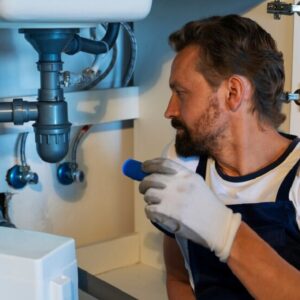Are you looking for the most effective way to minimise the energy expenditure of your commercial building? If so, then it may be time to speak to your commercial plumber about adding hydraulic plumbing to your property.
Since hydraulic plumbing promotes energy efficiency, it’s easy to see why many property owners are enlisting the commercial plumbers Melbourne engineers are using for all their hydraulic plumbing needs. What is hydraulic plumbing, and how will your company benefit from it?
Embrace Energy Efficiency with Hydraulic Plumbing System
The main reason any commercial property would opt for a hydraulic plumbing system is to make the property more energy efficient. Here’s a breakdown of what you need to know.
1. Defining Hydraulic Plumbing
At its core, hydraulic plumbing is the design and installation of plumbing systems that harness water pressure to transport water supply through pipes. Four key components make up hydraulic plumbing systems, as listed below:
- Pipes: The pipes used in your specific water system are customised by gradient and size to ensure efficient water supply. Simply put, there’s no need to use large pipes in areas where smaller ones can work.
- Valves: Flow rate in your pipes is controlled by specialised valves. This also affects the direction of fluid and overall fluid pressure.
- Pumps: Hydraulic pumps are used to produce fluid flow and also generate pressure into a hydraulic system which converts mechanical power into useable hydraulic energy.
- Tanks: Hydraulic tanks are designed to hold excess fluid as the system’s oil volume changes. This, in turn, prevents leaks.
All of these components work in conjunction with each other to transport, store, and distribute fresh rainwater, stormwater, and wastewater around a commercial or residential building. This then acts as a whole water supply management system.
2. Understanding What Services are Included
Hydraulic plumbing needs to be installed by a commercial plumber. The typical services in this plumbing type include the following:
- Sewer and stormwater plumbing and commercial drainage
- Natural gas supply systems
- Hot and cold water supply
- Fire services, such as hydrants and hose reel installations
- Greywater and blackwater treatment systems
- Rainwater and stormwater reuse
3. The Processes Within the Hydraulic Plumbing System
If you’re used to traditional plumbing systems, you may be keen to know how the processes in a hydraulic setup work. Here’s a brief overview:
- All hydraulic plumbing services work via the management of fluid movement and pressure.
- Components such as pumps and valves control the flow rate of water through a network of specially installed pipes that are fitted around a building.
- Pumps generate the necessary pressure to transport the fluid the plumbing systems. These also function as heating systems.
- Valves work to control the flow of fluid through the entire system.
4. Understanding the Different Hydraulic Plumbing Applications
Hydraulic plumbing has an extensive range of applications in commercial, industrial, and residential settings. The more common include:
- Fire protection systems: Hydraulics are used in essential fire protection equipment. This is effective because of the urgent need for water to move quickly through various types of hoses and fixtures in the event of a fire.
- HVAC systems: Hydraulics are used very extensively in various types of heating systems which can include underfloor heating and radiators. A common example of this is using heated rainwater to ensure an even distribution of warmth.
- Building water supply and drainage systems: Many buildings use hydraulic components for efficient water supply and drainage. The goal is to ensure that water pressure is available and consistent at every key location in the building.
5. Know the Benefits
There are many benefits to installing hydraulic systems in building and construction projects. As a property owner, you can expect the following:
- Control over water distribution: Hydraulic systems allow for more control over water distribution where it’s needed. By utilising water pressure, the water gets to where it’s needed faster than with traditional systems.
- Improved safety and reliability: Since water from hydraulic systems is highly reliable, it’s an ideal solution for all types of commercial buildings, including corporate, industrial, and even healthcare facilities.
- Cost-effectiveness: The initial costs of installation may be high, but components such as self-lubricating components reduce the ongoing maintenance requirements. This makes it a more cost-effective solution in the long term.
- Reduced water waste: Systems are designed to reduce and even prevent water waste by maintaining precise control over water flow through various pressure management systems. This, in turn, reduces leaks.
- Flexibility in design:The reliance on pipes for connectivity means that hydraulic systems can be customised to suit individual plumbing installations. Materials such as pumps and pipes can be shaped to fit the space where they’re needed.
Final Thoughts
If you want to take advantage of improved safety and reliability as well as have more control over the water distribution in your commercial or industrial setup, then installing hydraulic plumbing is the way to go. Speak to your local commercial plumber for an assessment sooner rather than later.





